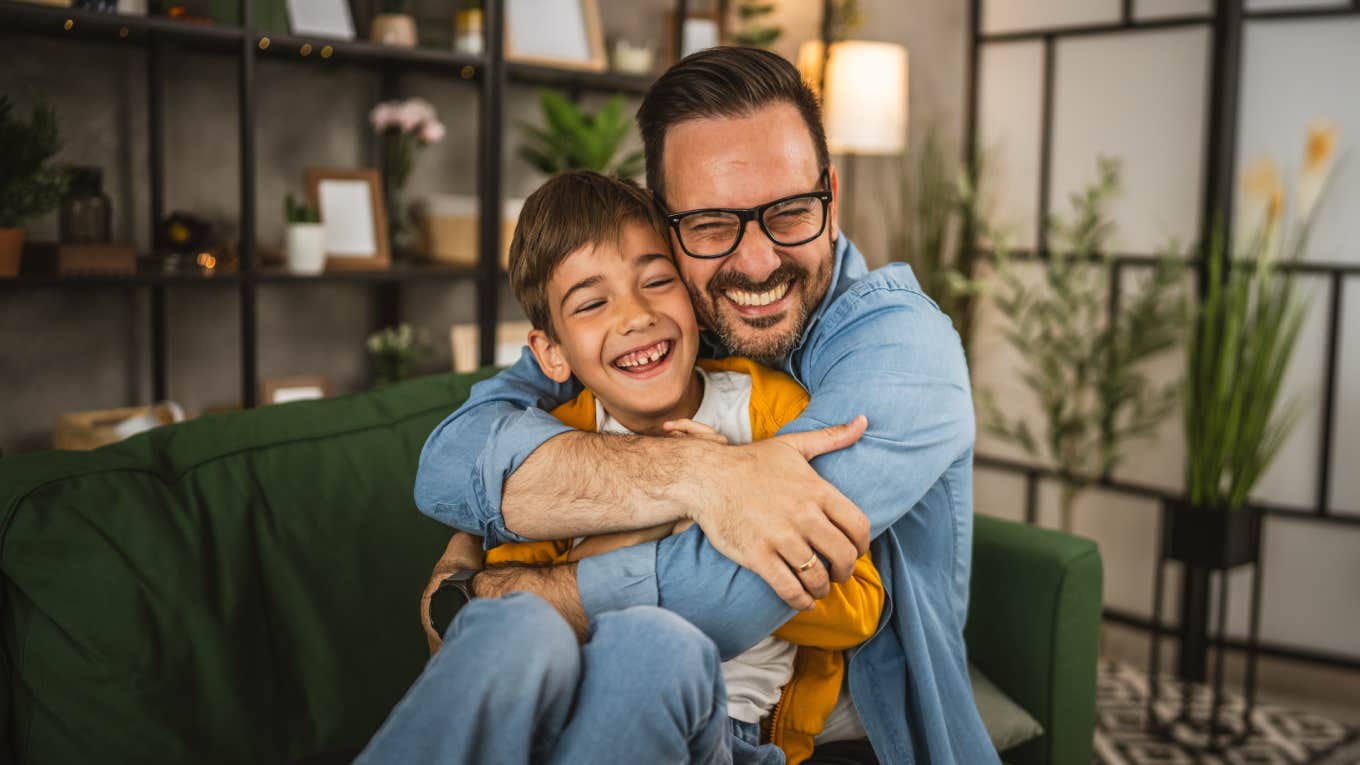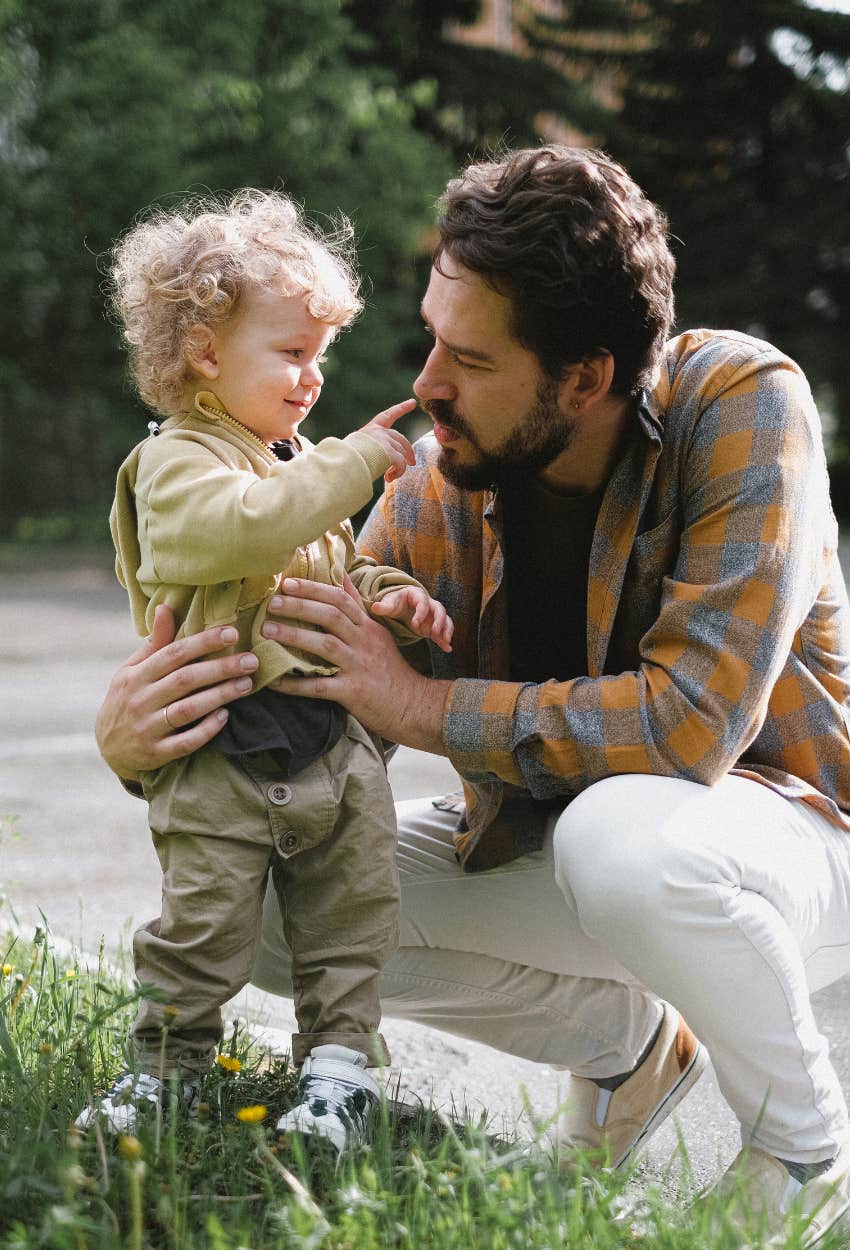3 Habits You Didn't Realize You Learned From Your Dad, According To Psychology
The role your dad had in your life can be a major factor in some of the traits and behaviors you have as an adult.
 Miljan Zivkovic | Shutterstock
Miljan Zivkovic | Shutterstock Our parents can have a huge impact on the type of people that we turn out to be. Our good habits and sometimes our bad habits can be traced back to how we were nurtured and cared for by the people who raised us.
When it comes to our fathers, however, there are certain habits and behaviors that individuals exhibit based on the kind of relationship and bond they had with their dad. From our self-worth to how we love other people, all of that can be attributed to our relationships with our fathers.
Here are three habits you didn't realize you learned from your dad:
1. Your sense of self-worth
In a TikTok video, a psychology major named Lexie detailed three specific habits you likely picked up from your dad, starting with how you view yourself. She explained that if love and praise were only conditional things that came when you did something well, like getting good grades, following the rules, or doing well in sports, then you might've learned that you're only valuable when you do something right.
If your dad was only showing you love and attention when he felt that you were succeeding, it might have a direct impact on how you view your worth as an adult. Psychotherapist Kaytee Gillis explained that it's through parents showing their kids unconditional love that we're able to feel safe in the world.
"When parents reject their children through conditional love, it teaches them that the world is not safe and that they can expect rejection. These children then grow up believing that they will be abandoned and rejected," Gillis said. "Their behaviors and interactions with others are likely to reflect these beliefs, as they are often unable to navigate conflict and struggle with self-esteem and self-worth. They may avoid getting close to others to avoid the pain of getting hurt."
2. Your attachment style in romance
Lexie explained that if your dad was warm, consistent, and emotionally available, then you were able to develop a secure attachment style. If he was distant, critical, or unpredictable, then you most likely developed an anxious or avoidant attachment style. In your romantic relationships, you may crave closeness but have an immense fear of abandonment and will push people away as a way to preemptively protect yourself.
Attachment theory, pioneered by psychologist John Bowlby, is defined as "A psychological model attempting to describe the dynamics of long-term and short-term interpersonal relationships between humans." The earliest relationships that we have in our lives come from the bond that we form with our parents. How we act in relationships directly correlates to either the abundance or lack of love in our childhoods.
3. How you regulate or suppress your emotions
"If your dad exploded with anger or never showed emotion at all, you might internalize those patterns," Lexie said. "Kids typically learn by watching their parents, not just what they feel and what's okay to show, it's often why emotional expression or emotional repression often mirrors what a parent does, especially the same gender parent."
 Anna Shvets | Pexels
Anna Shvets | Pexels
Psychology professor Abigail Gewirtz explained that parents play a major role in how a child learns to handle their emotions. Not only do children learn by seeing how their parents deal with emotions, but also how they react to their own outbursts and moods, and how they learn about emotions through conversations.
"These three conduits — watching parents’ emotions, experiencing parents’ responses to children’s emotions, and talking about emotions — all hinge on the parents’ own understanding of the world of feelings. If nobody teaches grown-ups to socialize emotions, then what our children learn may not be what we wanted to teach them," Gewirtz explained.
To help their own kids, Gewirtz encouraged parents to learn to effectively regulate their own emotions, help children identify and label emotions, listen to and validate children’s emotions, assist children with finding solutions to their emotional challenges, and when necessary, set limits.
Nia Tipton is a staff writer with a bachelor's degree in creative writing and journalism who covers news and lifestyle topics that focus on psychology, relationships, and the human experience.

